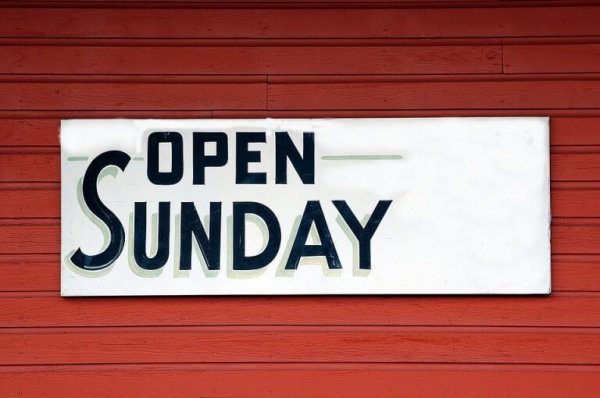Why Are Sundays So Melancholy?

Sundays mean a lot to people. It’s a day many people dread because of the emotions it brings up for them. For others, however, the last day of the week is a day to recharge their batteries and be present.
A lot of people feel anxious on Sundays. The day overwhelms us with its nostalgia and truth. In some ways, it’s as if Sunday slaps us in the face with a serious dose of reality. “Here I am, here is your freedom, here you are, here is your life.” It’s the end of a cycle, the end of the week.
It’s as if it were showing us everything we didn’t want to think about. Like opening a drawer we tried so hard to keep closed the whole week. But almost as if by magic, the drawer always opens on Sundays. A moment to open up and let out everything we didn’t want to feel.
On the other hand, Sunday is a bit of a paradox, because we’re often the most tired that day. We wonder how on earth we can start another week like this. But then again we’re tired on Sundays because we have different schedules on the weekends. These changes make our bodies feel a bit out of wack. Sometimes it’s because we rest too much, or because the change from the rest of the week’s stress was intense.

Sunday makes us think about life, with nothing to distract us or keep us from reflecting. This is your life, this is who you are. It’s like being stripped naked and left defenseless to the uncertain future. On Monday we will put on our work clothes, literally and figuratively. We will distract ourselves from the Sunday blues as we start work.
By keeping busy, we find peace, meaning, direction, and stability. We mean something, we have a purpose. We have a place in the world. Our grain of sand to help to build our society. A society full of people who fear the moment their life is revealed for what it is. People who are terrified, paradoxically, of freedom.
Erich Fromm pointed out this situation in his work “The Fear of Freedom” (1941). Here, he highlights this curious paradox between desiring freedom and fearing it and the responsibility that it implies. If I am free, then I am entirely responsible for my existence and my choices. This abyss in which I must invent myself causes intense distress, unease, and insecurity.
Sometimes we do whatever it takes to avoid the Sunday blues
We feel an emptiness that fills up with melancholy. It is a melancholy that appears in this scary last day of the week called Sunday. Sundays are a kind of limbo between what we are in society (our professional role) and who we are deep down. It puts our fundamental solitude right in front of us. The solitude that we don’t want to see.
Sometimes we push our solitude away by looking for any kind of company. Anything to not be alone. Because when we are alone, we feel the blues invade. We do whatever is within our power to avoid those feelings. Maybe we sleep all day or spend time with people whose company doesn’t do much else for us. Or we just try to keep busy.
A lot of people who are addicted to work can’t stand the idea of going a whole day without working. A day without work would mean they have to face the truth of who they are and how they are running away from themselves. Frenetic activity fills us with life because we are busy and we feel useful. But it also takes us away from who we really are. It distances us from our solitude and unease.

Work distracts us from who we are deep down
Work helps us avoid the melancholy and anxiety that spring up on Sundays. Everything that we try so hard to cover up will eventually come out when we least expect it. That’s why it’s important to take an honest look at what is happening on the inside. Otherwise, we will be incapable of making the best of this thing we’re trying not to see.
It’s logical to feel this way on Sundays. Coming back from a trip, the day before our busy routine begins again… This inner storm has a meaning and a feeling. It’s a feeling that isn’t always obvious. It’s important to live as useful beings chasing and believing in meaning, in building material.
At the same time, it is important to take care of our nature as human beings. That way, we can understand these natural reactions that arise abruptly and/or repetitively. Listening, embracing, and accepting our anxiety and melancholy will make it more bearable, and definitely more rewarding.
This text is provided for informational purposes only and does not replace consultation with a professional. If in doubt, consult your specialist.








